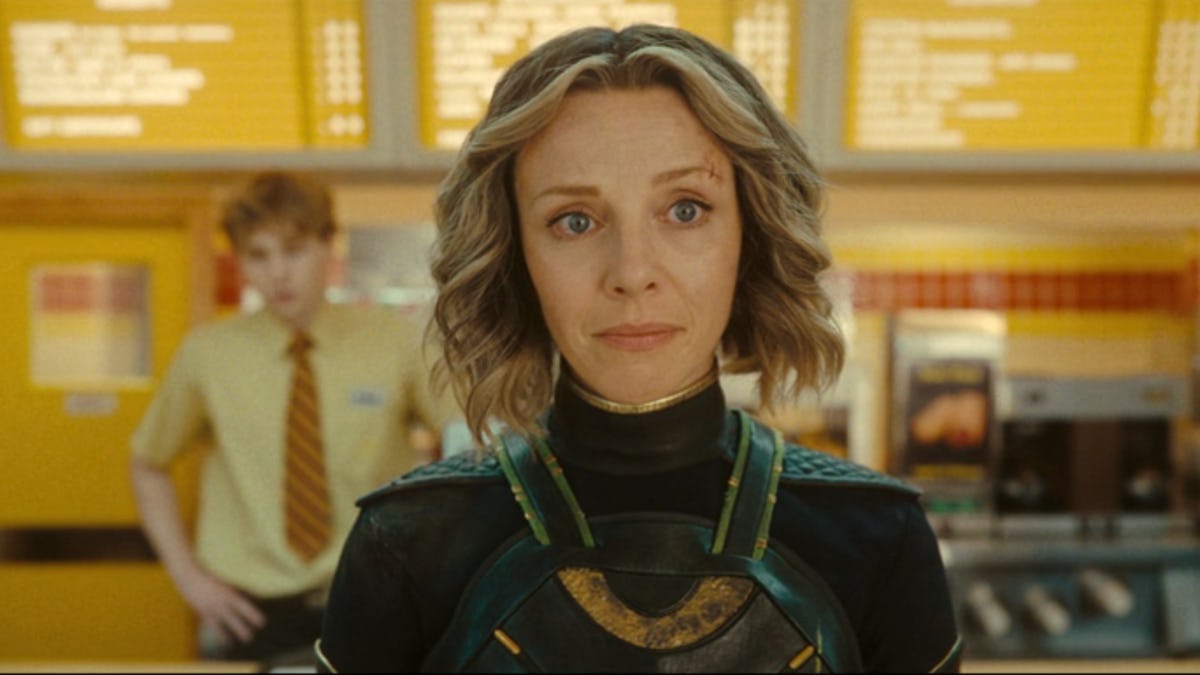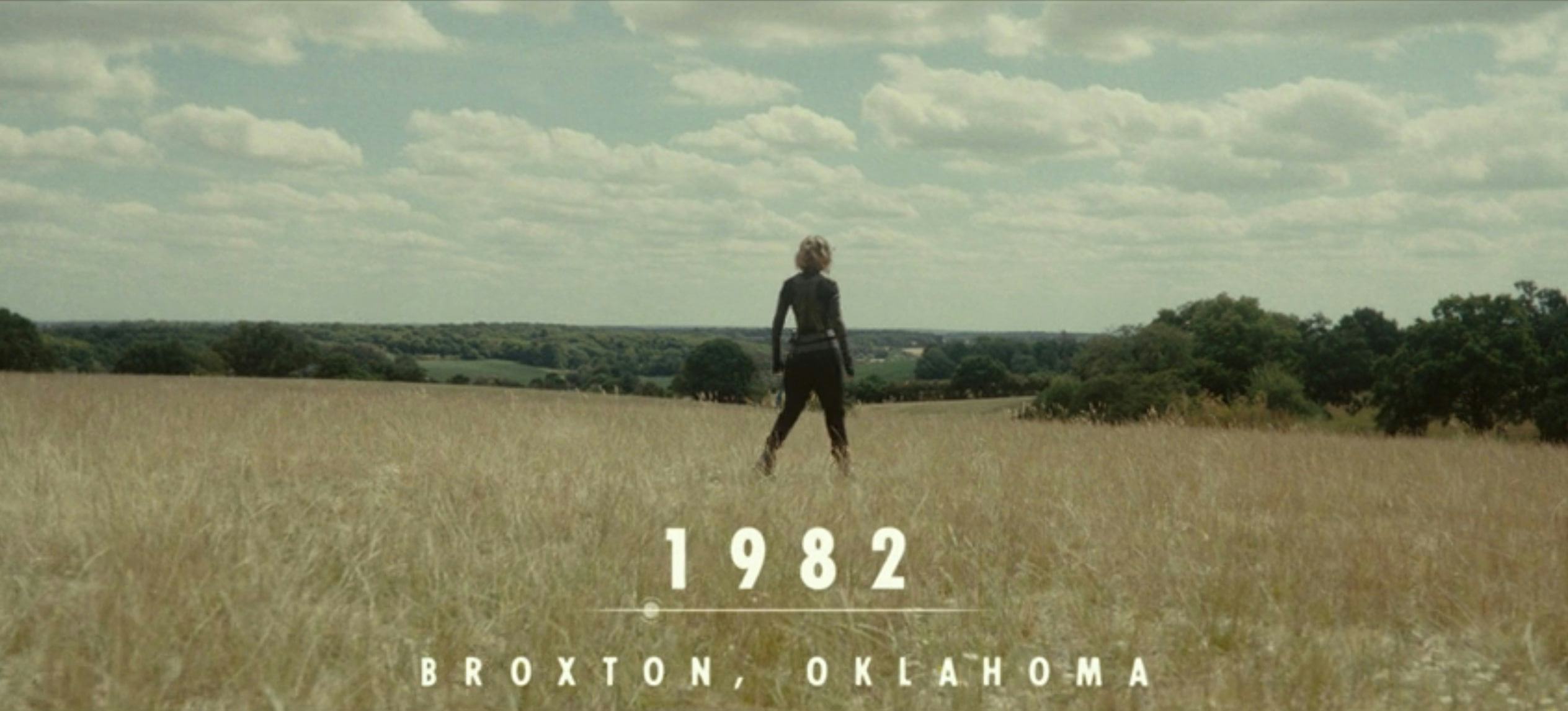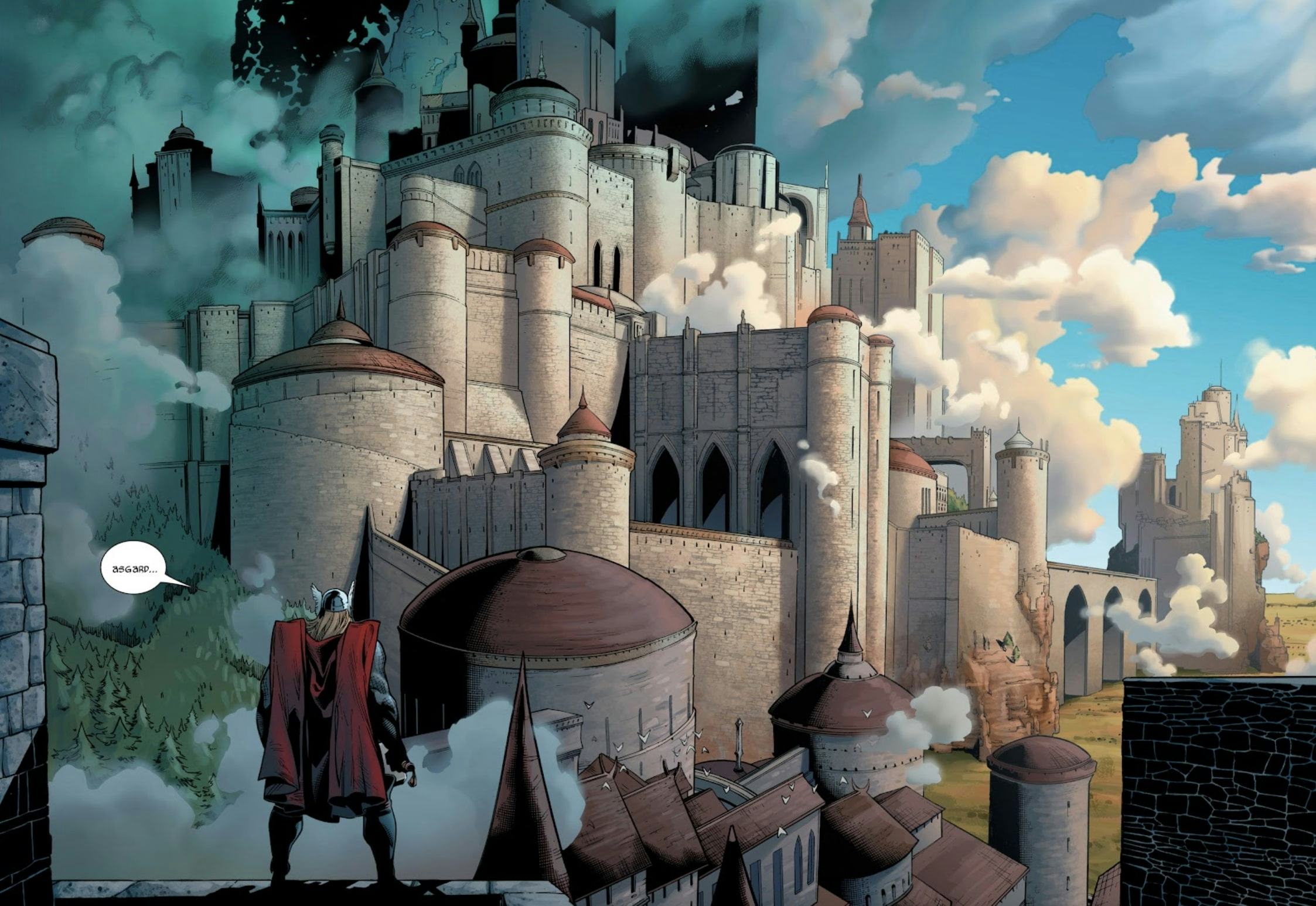
Loki’s back, and with it comes that time-honored Marvel tradition: post-credits scenes. Though there haven’t been many across the past few Disney+ series, Loki Season 2 Episode 1 took the opportunity, after its stylized credits, to catch up with the character who had purposefully run screaming from the main plot: Sylvie, the female Loki variant last seen murdering He Who Remains.
At the end of the season premiere, we suddenly cut to Broxton, Oklahoma, in 1980s. There, Sylvie walks into a McDonald’s, having seemingly found a new life. This scene is not just a clever way to slide some Americana product placement into a series that usually takes place outside of time as we know it. The setting actually has a greater significance to the Marvel as a whole.

Broxton, Oklahoma was introduced in the 2007 comic Thor Vol. 3 #1, where it essentially became the comics equivalent of New Asgard, a place where Asgard could inhabit on Earth. Thor originally summoned the entire city and planted it in a field in Broxton, but when the local authorities had questions about the permits involved, Thor had a simple solution: he made the city float a few feet off the ground.
Later, evil corporation Roxxon would pump the air above Broxton full of poison, blaming it all on the Asgardians. They would leave the area, and Broxton would come to be a victim of The God of Hammers in Thor Vol. 6 #20, published in 2022.
Broxton’s appearance in Loki is not the only connection this small town has to the Marvel Cinematic Universe. Whitney Frost, the movie star from Agent Carter, was born Agnes Cully in 1911 in Broxton, Oklahoma. Clearly, this is a location that Marvel likes to pay homage to.

While it’s possible that Broxton’s appearance could hint at for future storylines that take advantage of the location from the comics, it’s more likely that this is an Easter egg akin to Agent Carter’s: just a familiar name to those who recognize it. After all, there’s already a New Asgard on Midgard, and it looks to be thriving after the events of Thor: Love and Thunder.
But still, it’s exciting to see that Loki still hasn’t forgotten its own Asgardian roots. While the series has steadily moved away from being about Loki and his personal baggage with his Asgardian past, it’s still called Loki — there’s sure to still be some of that ahead.







